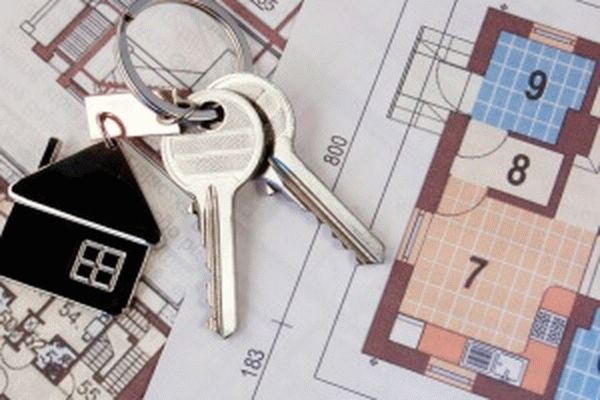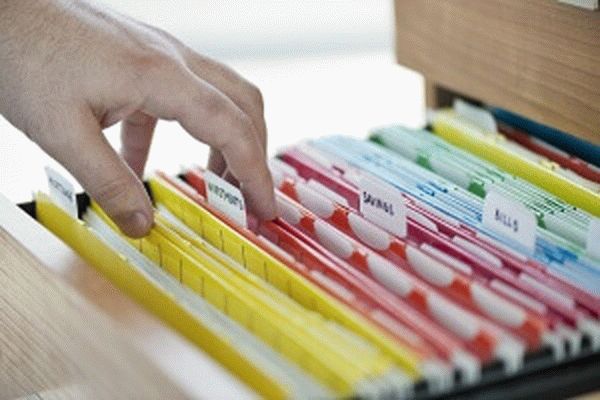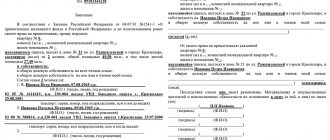Many citizens of the Russian Federation are faced with the need to privatize state-provided housing.
Dear readers! The article talks about typical ways to resolve legal issues, but each case is individual. If you want to find out how to solve your particular problem , contact a consultant:
+7 (499) 110-56-12 (Moscow)
+7 (812) 317-50-97 (Saint Petersburg)
8 (800) 222-69-48 (Regions)
APPLICATIONS AND CALLS ARE ACCEPTED 24/7 and 7 days a week.
It's fast and FREE !
But, before getting down to business, you need to familiarize yourself with all the intricacies and features of this procedure in order to avoid wasting time and unnecessary expenses.
What is this
The process of transferring to citizens legally residing in a state or municipal apartment the right to own this housing on a free basis is called privatization.
The procedure is carried out so that the private owner can independently manage the living space: be its owner, lessor, donor, etc.
Basic conditions for privatization:
- the program is available only to citizens of the Russian Federation;
- Only the apartment that residents use under a social lease agreement can be provided free of charge;
- the procedure is carried out free of charge.
Each individual citizen is allowed only one-time participation in privatization.
How long does housing privatization actually take?
Ideally, a person is given 15 days to register documents and 45 to collect documents and prepare other papers (social tenancy agreement, consent of residents, etc.). However, current legislation clearly does not take into account many factors and problems that a person faces during this process. As practice shows, only a few can manage it in 60 days. It takes a lot of luck and a lucky coincidence to meet the deadline. But how long does privatization of an apartment actually take?
On average, the actual period of privatization is 3-4 months, in cases where the process does not require judicial intervention. When you decide to privatize housing through the court, the process may take 7-9 months. The speed of privatization is influenced by the following factors:
- The efficiency of the authorities who will work with your documents. As practice shows, it is these people who are the reason for the delay in the process. After submitting the documents, it may take much longer to get the result than promised.
- Locations of all institutions where you need to collect documents and signatures. If they are all located in different cities, then it will not be possible to quickly collect everything you need.
- The process may also depend on the locality. It will be easier to privatize property in places where there are short queues and authorities are not overloaded. Some cities and towns may offer to speed up the process for an additional fee. Whether this is good or bad - decide for yourself.
- It is very important not to have utility debts. Debts should be paid off, or dealt with through a lawsuit, which will take a month or two (at best).
- The condition of the housing itself should not be discounted. You may be refused after submitting your documents if they consider that the building is unfit for habitation and is being demolished. In this case, you will have to go to court and prove that it is safe to live in the building. This court case will last less than for utility issues, but can still take up a month of your time.
What is regulated
The program began to operate in accordance with the Law of the Russian Federation No. 1541-1 (1991) and was supplemented by several federal regulations:
- No. 218-FZ (accounting and registration of premises);
- decision of Rosskommunkhoz No. 4 (dated November 18, 1993);
- Housing Code of the Russian Federation (section No. 3 - legal status of premises provided under a social tenancy agreement);
- Civil Code of the Russian Federation (indicates the reasons for the emergence and transfer of ownership).
There are also a number of laws adopted to extend the duration of the privatization program.
The last of them, No. 14-FZ, was approved in 2020 and removed temporary restrictions on the possibility of applying for re-registration of ownership of an apartment.
Advantages of home ownership
Registration of an apartment as private property is associated with significant advantages:
- no need to pay rent;
- you can dispose of the living space at your own discretion;
- there is an opportunity to sell or donate it, rent it out, or transfer it as an inheritance;
- the registration procedure is simplified (the owner can register and deregister any other citizens at his discretion);
- there is no threat of eviction (even if there are significant debts for utilities, such a probability is extremely low);
- granted the status of a full-fledged participant in the process of managing common property;
- It becomes possible to register an apartment as collateral.
Finally, there is a significant increase in the welfare of the new owner of the property and his family in relation to the cost of housing.
Minuses
The “fly in the ointment” in this rosy picture is associated with the following points:
- payment for current and major repairs of the house after privatization is carried out at the expense of the residents, and not the state or local budget;
- the owner of the apartment is obliged to pay property tax (from 2020, the amount is calculated based on the cadastral value of the property);
- the right to improve living conditions is lost;
- The procedure for re-registration of housing may take a long time and may require monetary costs from 600 to 5,000 rubles (taking into account the collection of documentation, tax payments, etc.).
Is it possible to re-privatize an apartment if the house burned down? Is privatization of a cooperative apartment necessary? Find out here.
It would also be a good idea to carefully study the civil and housing codes in order to prevent possible violations during privatization, especially time delays.
How long does privatization last in Russia in 2019?
The privatization period of 3 months can be considered as realistic if a number of conditions are met. Citizens’ knowledge about the specifics of the process and requirements regarding paperwork plays an important role.
Every resident of Russia has every right to take part in the privatization procedure. To do this, it is only necessary to meet certain conditions established by the legislation of the Russian Federation.
Many citizens refuse to privatize real estate due to the long period of transfer of housing from state to private ownership.
However, knowing about some nuances, you can significantly reduce the duration of the privatization process.
general information
Based on the Federal Law “On Privatization” No. 1541-1 of July 1991, the total period of privatization cannot exceed 2 calendar months from the date of submission of the full package of documents.
How long it takes to privatize an apartment directly depends on several factors, namely:
- from collecting documents;
- from the existing queue for the purpose of submitting documents.
At the same time, the collection of documents depends on:
- the speed of response of local authorities to an application for requesting documentation;
- territorial location of all privatization participants necessary for collecting signatures and personal documentation;
- location of the property, in large cities you can speed up the registration procedure for a small fee.
How long it takes to privatize an apartment is influenced by other additional nuances, namely:
- the presence of debt for utility services;
- the current technical condition of residential real estate; if the apartment is located in a dilapidated building, it cannot be transferred to private ownership.
All of these facts directly affect the time of transfer of real estate from state to private ownership.
Normative base
The main legislative act is considered to be Federal Law No. 1541-1 “On Privatization.” It specifies a detailed mechanism for privatization and the conditions that must be met in order to transfer real estate into private ownership within a minimum period.
Deadline for free
Initially, time limits were established for the process of re-registration of state and municipal housing, launched in 1992.
Several times a deadline was set, which had to be postponed for some time. So, in 2020 it was determined as of 03/01/2017.
The final decision on this issue was made together with Federal Law No. 14-FZ (dated February 22, 2020).
According to this resolution, all time limits regarding the gratuitous transfer of housing to citizens of the Russian Federation were lifted.
If we are talking about a “dacha amnesty,” then it allows for a simplified procedure for the privatization of a dacha and the adjacent land with all ancillary buildings, but only until March 1, 2020.
In the future, it will be possible to transfer such a house into private ownership only in accordance with the generally established procedure.
Reasons for multiple extensions
The adoption of Law No. 14-FZ was necessary, since the procedure for registering ownership rights is quite complex and time-consuming.
This may be due to the fact that:
- it is necessary to legalize in court redevelopments not approved by the BTI authorities;
- Certificates from the house management or housing office are required confirming the right to carry out privatization;
- minor residents do not have permanent registration, or they were registered at a different address before the privatization attempt was made (the child must have a share in the privatized housing);
- the deadline was extended due to accidents or dilapidation of the privatized housing (first you will have to wait in line for relocation).
Therefore, it is almost impossible to predict exactly how long it will take for the complete privatization of public housing in the Russian Federation, and, therefore, there is no point in setting time limits.
How long will privatization take in different situations?
No one can determine exactly how long privatization will take. While collecting all the necessary and additional documents and waiting in line, it cannot be ruled out that the procedure will last six months or more.
There is an urgent procedure for registering privatization. The procedure will require additional financial investments. It lasts from ten days to a month.
When collecting a package of documents, which takes from a week to two, the announcement of the result is expected. It takes fifteen days. To this is added the time for registration of property carried out by the registration chamber - 30 days. This is how the process is completed in the legally allotted two months.
A separate point is the refusal to privatize. It significantly delays the desired procedure. This case is considered in court if the applicant wants to appeal the decision. He must collect papers proving the legality of his claims, a waiver document and file a statement of claim. The case is rare, but real. The main reasons for the negative verdict:
- refusal or disagreement of one of the residents;
- emergency condition of the house;
- previous completion of the privatization procedure;
- illegal redevelopment.
The claim will take longer to process and be adjudicated. It is possible to achieve and formalize privatization through the court in 7–10 months.
What determines the timing?
It is impossible to predict how the procedure will turn out. The abundance of life factors increases or, conversely, shortens the registration period. It is advisable to be prepared for any turn, so let’s consider what factors influence the timing of housing privatization in Russia.
Why deadlines may extend:
- Inadequate documentation.
We received the wrong certificate, didn’t stamp it, scanned the original poorly – these are common mistakes when collecting documents. Often, the entire process takes up to 2 months. It is logical to assume that privatization will be seriously delayed.
- Huge queues.
The number of people wishing to transfer ownership of an apartment is growing every year. Moreover, the procedure is free and unlimited. Local service employees may simply not be able to cope with the flow of people. Sometimes up to 100 people go through the registrar per day. Despite the fact that the reception regulations allow no more than 40 people per day.
- No-show of participants.
Relatives registered in the apartment may live in other cities. Privatization does not allow absentee participation. The person must visit the administration in person, and not alone, but with all other members of the employer’s family. Only in this case can you obtain permission from the administration.
The way out of the situation is to issue a power of attorney for one person (for example, a tenant). This approach greatly simplifies the procedure. The only thing to remember is unconditional trust in the chosen representative. Alas, housing fraud is by no means uncommon in our society.
Reasons for multiple extensions
The adoption of Law No. 14-FZ was necessary, since the procedure for registering ownership rights is quite complex and time-consuming.
This may be due to the fact that:
- it is necessary to legalize in court redevelopments not approved by the BTI authorities;
- Certificates from the house management or housing office are required confirming the right to carry out privatization;
- minor residents do not have permanent registration, or they were registered at a different address before the privatization attempt was made (the child must have a share in the privatized housing);
- the deadline was extended due to accidents or dilapidation of the privatized housing (first you will have to wait in line for relocation).
Therefore, it is almost impossible to predict exactly how long it will take for the complete privatization of public housing in the Russian Federation, and, therefore, there is no point in setting time limits.
Who is eligible
Groups of persons who can apply for registration of municipal and state property in possession are specified in Law No. 1541-1 (Article 2).
According to this regulation, the applicant must meet the following characteristics:
- be a citizen of the Russian Federation;
- live in an apartment on the basis of a legally executed social tenancy agreement;
- not previously take part in the privatization procedure (does not apply to persons under 18 years of age).
All these indicators must be documented. Authorized bodies are responsible for checking the submitted papers.
Preparatory stage
First of all, the consent of all apartment residents (including minors with the participation of guardianship and trusteeship authorities) is required for the privatization of real estate. Without this, it is impossible to obtain an apartment as private property.
Citizens who participated in privatization before reaching adulthood have the right to repeat the procedure in the future.
In some cases, residents may consent to the privatization of an apartment, but refuse to participate in the procedure itself, retaining the right to receive ownership of another home. Such a refusal in favor of other persons applying for this object must be notarized, and a copy must be made immediately, since it will need to be presented at least twice.
At the end of the preparatory stage, it will be necessary to prepare the identity cards of all citizens registered in the premises.
How long does it take to privatize an apartment?
The period of privatization of an apartment directly depends on the completeness of the submitted package of documents, as well as other factors.
Let us consider the period of privatization at each stage separately.
Is it possible to cancel apartment privatization in 2020? See here.
After submitting documents
The main package of documents for privatization is considered to be:
- application for privatization;
- applicant's passport + copy of all completed pages;
- passports of other participants in the transaction + copies;
- social rental agreement;
- documents that confirm the absence of debt for utility services;
- an extract confirming the presence of real estate in municipal ownership;
- a certificate in Form 3, which indicates the number of registered citizens in a specific living space;
- documentary evidence of non-participation in privatization of any of the participants previously.
Based on the generated request, authentication will be verified, after which a decision will be made to begin the privatization procedure or to refuse it.
The period for making a decision after submitting documents is no more than 15 calendar days.
A sample application for privatization of an apartment is here.
In case of refusal
The main reasons for refusal are considered to be:
- disagreement of one or a group of residents in the privatization procedure;
- re-participation in the procedure;
- housing is officially recognized as unsafe;
- there is a fact of real estate redevelopment without documentation.
In addition, do not forget that you cannot privatize:
- official property;
- real estate located in a park area, on the territory of museums or nature reserves;
- apartment-museums;
- living space located in closed military camps.
In case of unlawful refusal, applicants have the right to apply to a judicial authority with a corresponding statement of claim.
In such a situation, the privatization period may last up to 6–12 months.
It is imperative to provide the court with documentary evidence.
Documentation
It usually takes at least 4 weeks to collect a complete package of necessary documentation.
It must contain:
- Passports (or birth certificates for children under 14 years of age) of all persons living in the housing being issued.
- Duly completed consent of all residents to carry out the procedure.
- Notarized refusals to participate in the privatization of the apartment (if any).
- Social rent agreement confirming the fact of payment for housing without debt (provided by the Department of Housing).
- Housing cadastral and technical passport (to obtain it, contact the BTI).
- Receipts and other documents indicating the absence of debts on utility bills (if it is impossible to pay the debt at once, debt restructuring should be discussed with the service provider);
- An extract from the Department of Property Relations proving that the housing is municipal.
- Certificate F-3 in two copies (shows exactly how many people live in municipal housing).
- A receipt confirming the fact of payment of the state duty (this amount is shared among all citizens participating in the procedure);
- A document indicating that the applicant has not previously been a participant in a similar procedure.
These are the main documents, but it is possible that you will need to submit additional papers, for example, related to a change of name, or the fact of participation in another procedure for registering state property as private.
Citizens are given the right to freely re-participate in the re-registration of an apartment if during the previous privatization their rights were violated and this act was confirmed during the trial.
Validity
Each of the above list of documents has its own validity period:
- A certificate confirming the absence of debts for housing and communal services is valid until the end of the billing period.
- The apartment card is valid for a month from the date of issue.
- The registration certificate and refusal to participate in privatization have no restrictions on the validity period (for this reason they should be obtained before all other documents).
- The F-3 certificate is valid for only 10 days.
- Consent to privatization remains valid for a month.
Based on this information, you can optimally plan the sequence of your actions when collecting documentation.
How long does it take to privatize an apartment in 2020?

Sooner or later, most of the tenants of municipal housing decide on privatization.
This makes it possible to freely dispose of the apartment and even receive a certain profit, for example, by renting it out.
You should be aware that the deadline for privatizing an apartment may be extended due to a lack of documents or the need for additional certificates.
If you want to find out how to solve your particular problem, please contact the online consultant form on the right. It's fast and free!
It is impossible to answer unequivocally how long the privatization of an apartment may last for a number of reasons. However, those individuals who wish to privatize housing need to know the timing of document verification and registration of the relevant agreement.
According to the law (Article 8 of the Russian Federation), from the moment of submitting all documents (see What documents are needed for privatization), the privatization process should take no more than 60 days. This means that within 2 months you should have a contract on the ownership of privatized housing.
In practice, only a small number of citizens can become owners of privatized housing in 2 months. Ideally, registration should take 15 days, the remaining 45 are allocated for collecting and processing documents. But usually this process lasts for 3-4 months. In case of litigation, privatization can last 9 months.
The privatization process may be delayed for several reasons.
Registration of privatization of an apartment, collection of documents depends on:
- The speed of reaction of authorities to requests for documents;
- Locations of participants in the privatization process for collecting personal documents and signatures;
- The locality in which the apartment is located (in large cities it is usually offered to speed up the process for an additional fee);
- Queues at the local government office for submitting documents;
- Having debts for utilities (despite the fact that debt is not an obstacle to privatization, quite often it turns out to be difficult to start privatization, although this is resolved in court - it will take several months to obtain permission).
There are situations when housing privatization is refused. Usually, if all the documents are collected correctly, then there are no problems.
Most often, privatization failure is observed in the following cases:
- Disagreement of one or more residents to privatization and refusal to write an application to a notary in favor of other persons;
- Re-participation in privatization;
- Housing is in poor condition;
- Carrying out illegal redevelopment.
In case of refusal of privatization, you can go to court with all the collected documents and a document indicating the refusal to transfer housing into personal ownership.
How long does it take to privatize an apartment through the court? Typically, the case is considered approximately 1-1.5 months after going to court.
Housing that is not subject to privatization (you don’t even have to try to challenge the refusal in court) includes:
- Premises on the territory of a park, museum, reserve;
- Apartments in buildings subject to demolition or recognized as unsafe;
- Housing in areas affected by man-made disasters (for example, in the Chernobyl Nuclear Power Plant exclusion zone);
- Apartment-museums;
- Housing in military camps;
- Premises in enterprises and dormitories.
It takes a lot of time to collect a complete package of documents – usually at least a month. This depends on the location of the persons involved in privatization, the queue at self-government bodies, the speed of response of authorities to requesting documents, and the presence of housing and communal services debts.
To privatize an apartment, you must obtain the following documents.
- Passports of the applicant and all residents (certificates for minors). It must be taken into account that in order to submit an application for privatization (see How to write an application for the privatization of an apartment), all residents of the apartment, including children over 14 years old, must agree with this. Minors can express their opinion only with the permission of the guardianship and trusteeship authorities (the permission is valid for 1 month). If someone refuses to privatize an apartment (for example, they should soon receive another housing), then this person must write a refusal in favor of other residents with a notary (it is recommended to immediately obtain 2 copies).
- A social tenancy agreement and a certificate of payment for this housing. These documents can be obtained from the Housing Department. All debts must be paid off.
- Registration certificate for the apartment. To obtain this document, you should contact the BTI. After some time, a specialist will arrive and inspect the apartment, after which they will provide a technical and cadastral passport of the housing.
- Receipts for payment of utilities, or other documents confirming the absence of debts. If a one-time repayment is not possible, then you need to draw up an agreement with the service provider on debt restructuring.
- An extract confirming that the apartment is municipal. It can be obtained from the Department of Property Relations.
- F-3 certificates (issued at the passport office). These documents confirm the number of people living in the apartment. 2 copies will be required. The certificates are valid for only 10 days, so there is no point in taking them in advance.
- Receipts for payment of the state duty (in 2020 it is 2000 rubles), and this amount must be divided between all participants in the process. For example, if 4 people live in an apartment, then each person must have a receipt for payment of 500 rubles.
- Confirmation of not previously participating in the privatization process (you cannot be the owner of more than 1 apartment).
Before deciding to privatize an apartment, you need to learn about the advantages and disadvantages of privatized housing.
- No need to pay rent. Each resident of non-privatized housing is required to pay a fee. Its size depends on the area of the apartment. For each square meter you have to pay 2-2.5 rubles.
- The ability to freely manage housing. The apartment can be sold, rented, donated or specified in a will.
- Facilitation of registration. Only close relatives can be registered in public housing, and even then not always. In addition, permission for registration must be obtained from the local government. The owner can register anyone into a privatized apartment at any time, and it’s just as easy to sign him out.
- The owner of the apartment cannot be evicted. Even if you don’t pay utility bills for years, it’s almost impossible to evict the apartment owner. Cases when housing is sold through legal proceedings to recover losses are rare.
- The need to pay for current and major home repairs. Residents of a non-privatized apartment should not do this - all expenses are paid by the local or state budget.
- The need to pay property taxes. From 2020, the tax is calculated based on the cadastral value of housing.
- Lack of right to housing improvement. If the house is demolished, the owner of a privatized apartment can only count on housing of the same area, while the social rental agreement provides for the possibility of obtaining an apartment of a larger area (depending on the number of residents).
- The privatization process can take a long time, and its cost is 600-5000 rubles (collection of documents, extracts from archives, payment of taxes).
If you still have questions on the topic “ Time limits for privatization of an apartment in Russia ,” ask them in the comments.
Briefly describe your problem in the form, lawyer for FREE
will prepare an answer and call you back within 5 minutes! We will solve any issue!
All data will be transmitted over a secure channel
Fill out the form and a lawyer will contact you within 5 minutes
Registration of all documents during the privatization of housing requires a lot of time and patience. Visits to authorities, requests for necessary certificates, waiting for applications to be reviewed by the local administration and registrars - all these are mandatory steps, without which it is impossible to transfer an apartment from municipal property to private property.
This is interesting: Payment for housing and communal services through government services: instructions 2020
The deadlines for completing all documents and receiving an extract from the Unified State Register are clearly regulated by current legislation. The Federal Law “On Privatization” dated July 4, 1991 states that in total the privatization of municipal housing should take no more than two months. Of which, 15 days will be spent on registering documents and 45 days on preparing and approving a package of necessary documents. But this is ideal; in practice, registration can take much longer.
Very rarely does anyone manage to carry out privatization from start to finish in the required two months; these people can rightly be called lucky, because the majority spend three and sometimes four months on the same procedure. Provided that the case does not go to court (in this case, the deadlines will drag on for at least another 60 calendar days).
The duration of privatization is affected by:
- Speed of consideration of citizens' appeals by government officials. In cities of federal significance, structures work more harmoniously, so decisions are made much faster.
- The territorial distance between all family members registered in the apartment being re-registered. The privatization agreement must contain the signatures of all participants, so their simultaneous presence in the administration of the locality at the location of the property, and then in Rosreestr, is mandatory.
- Registrar workload. The more citizens apply to government offices to carry out registration actions in relation to real estate, the longer it takes to consider and process each specific application.
- Debt on utility bills. The sooner the bills are paid, the sooner you can proceed with home ownership. In some cases, citizens manage to privatize apartments with debts, but only with the appropriate court order in hand.
- Additional checks and examinations ordered from the BTI.
It is almost impossible to calculate all the nuances in advance. In each specific case, the registration period can be shortened or increased, but there is still a chance to try to predict events and avoid some problems in advance.
Most often, deadlines are extended for the following reasons:
- Incorrectly completed documents. The name of the certificate was mixed up, the stamp was poorly affixed or the stamp was missing altogether, the scan of the document turned out blurry and unreadable. All this can cause a refusal to privatize, so carefully check each document before submitting it for consideration, this way you will be able to significantly reduce the time it takes to complete the procedure.
- Long lines. Despite the fact that the provision on free privatization of housing in Russia was introduced back in 1991, many municipal apartments still remain in the ownership of municipalities, and the queues of people wishing to privatize them are not decreasing, but on the contrary, they are getting longer and longer every year . As a result, registrars (especially in the regions) do not always have time to cope with the influx of people.
- No-show of participants. There are cases when persons registered in an apartment, having moved for permanent residence to another city, decide not to check out of their old housing. The situation is complicated by the fact that privatization is possible only with the personal presence of all residents or their proxies. Therefore, to carry out the procedure, you need to bring together all family members to sign an agreement with the local administration or ask an absent relative to issue a notarized power of attorney for the tenant or another loved one whom the nominal tenant trusts 100%.
Even if you have all the certificates and documents in your hands, and you are sure that no problems should arise, the registrars may refuse privatization and further re-registration will drag on for an indefinite period, until you eliminate all specified by government agencies shortcomings.
The grounds for refusal of privatization may include:
- disagreement of one of the employer's family members;
- repeated participation of one of the participants in privatization (if the person first participated in privatization as a minor, upon turning 18 he has the right to another similar procedure);
- the property being registered is recognized as unsafe and is subject to demolition;
- illegal redevelopment was identified;
- the housing is not municipal or is located in a closed military camp.
If you do not agree with the registrars’ claims, you can apply for restoration of your violated rights to the district court at the location of the re-registered living space. Be prepared that the terms of privatization will automatically increase by at least two months, and maybe longer, everything will depend on the complexity of the case and additional factors.
Collecting documents is one of the important stages, which also takes a lot of time:
- if the passport is expired and a replacement is necessary, privatization will be postponed for a maximum of 10 more days;
- registration of notarial waivers and powers of attorney occurs on the day of application;
- preparation of a registration certificate for an apartment is carried out by BTI employees 7-10 days from the day following the submission of the relevant application;
- the issuance of an extract from the house/apartment register is carried out by the migration authority or housing department also 7-10 days after the request;
- an extract from the personal account is prepared within 5 working days;
- It will take up to 5 days to receive certificate No. 2 about non-participation in privatization;
- if minor children are involved in privatization, it is necessary to additionally obtain permission from the guardianship and trusteeship authority, and this is another 14 days.
To reduce the time spent collecting documents, try to apply for important certificates and permits at the same time. It will take you no more than 2 days to go through all the departments, provided that there are no long queues, but after two weeks the required papers will be collected and you can begin re-registration.
If you think that government officials are delaying privatization, then contact the lawyers on our website. They will be able to advise you free of charge on whether your rights are really being violated and where it is best to file a complaint.
In general, the best way to reduce the time spent on privatization is to contact a professional lawyer specializing in housing law. He will be able to collect all the required documents and prepare the necessary applications in the shortest possible time. This will help to significantly reduce the time for re-registration of housing.
- Due to constant changes in legislation, regulations and judicial practice, sometimes we do not have time to update the information on the site
- In 90% of cases, your legal problem is individual, so independent protection of rights and basic options for resolving the situation may often not be suitable and will only lead to a more complicated process!
Therefore, contact our lawyer for a FREE consultation right now and get rid of problems in the future!
Sooner or later, a moment comes when a municipal housing tenant wants to privatize the property. And why not, because in the future you can make a profit by renting out your home?
By privatizing an apartment, the owner will be able to rent out the premises and make a profit, or save on expenses for the apartment, because he will not have to rent a house and fill someone else’s pocket with profits.
This is interesting: Replacing heating batteries in an apartment - at whose expense and in what cases? 2020
It is noteworthy that the period for privatization of an apartment can be extended if there are insufficient papers in the package of documents or the need to obtain any additional certificates.

Privatization of an apartment is not a one-day process
There is no clear answer to the question of how long it will take to privatize an apartment. This is due to a number of reasons. In any case, before re-registering an apartment, you can familiarize yourself with the deadlines for checking your package of documents and registering the contract.
If we refer to the current legislation of the Russian Federation, it can be noted that the privatization procedure should last no more than 60 days. It turns out that already 2 months after submitting the documents, you should be given an agreement on the ownership of privatized housing.
As practice shows, only a few manage to become the owner of privatized housing 2 months after registering a package of documents and an agreement. Ideally it should look like this:
- 15 days are provided for registration of documents
- 45 days are allotted for collecting and processing other documents
But in fact, the privatization process may take months. In fact, 3 - 4 months if privatization takes place without litigation. If a trial takes place, then it will hardly be possible to privatize the apartment in 8–9 months. The speed of privatization may be affected by the following factors:
- The efficiency of the authorities in considering your issue.
- The location of all participants in the process, because this affects the collection of personal signatures and documents.
- Locality, because in large cities you may be offered to speed up this process for an additional fee.
- The number of people in queues to submit documents.
- Debt in payments for utilities. This significantly affects the speed of the privatization procedure. And if you have a debt, you will have to get permission through the court. However, this will take another couple of months.
It is worth taking into account that if you plan to privatize housing that is in disrepair, then you may be refused. Then you will have to prove through the court that you can live in the housing. A judicial inspection and assessment of specific housing will be required, which will take another 1 - 1.5 months of your time.
Privatization of an apartment has a lot of positive aspects
The privatization process does not always go smoothly. In principle, if all documents are provided, then there should be no problems. However, all people are different, and circumstances are also different. The most common grounds for refusal of privatization are:
- One of the residents opposes privatization and does not give his consent to this process
- When re-participating in the privatization process
- Emergency housing conditions
- If the apartment was redeveloped without obtaining permission from the authorities
Even if you get rejected, it doesn't mean it's over. You can file a claim in court by presenting to the court all available documents, including the document on the basis of which the regulatory authority refused to privatize the housing. If you find a highly qualified lawyer, your chances of success will increase significantly.
There are a number of premises that are not subject to privatization. These include:
- Premises located in park areas, museums and nature reserves
- Apartments that are subject to demolition or are recognized as unsafe
- Housing located in an alienated zone (a striking example is the Chernobyl zone)
- Apartments – museums
- Real estate in military camps
- Apartments in dormitories or enterprises

To privatize an apartment you will need a package of documents
It will take a lot of time to collect the necessary papers. It would seem that they could be collected there, but once you delve into this process, you realize that everything is not as simple as it seems at first. After all, you will need to obtain consent for privatization from the residents, have this deed certified by a notary, and also, no less important, the presence of debt for utilities. For the privatization process you will need the following papers:
- Passport of the citizen of the Russian Federation who is the applicant
- Passports of all apartment residents. The privatization process can only begin after registration of the corresponding application, but provided that there is the consent of all participants in the process. It is noteworthy that if one of the participants decided to refuse privatization, then he must write a refusal in favor of one of the participants and have it notarized.
- Social tenancy agreement and certificate of payment for this housing. However, all existing debts must first be repaid, and these documents can be obtained from the Housing Department.
- All kinds of documents indicating the absence of debt. If you have a debt, but it is not possible to pay it off in one payment, then you need to agree with the supplier on further repayment of the debt. For example, agree on restructuring your debt.
- An extract that confirms that the apartment is municipal. This paper is issued by the Department of Property Relations.
- Certificates F-3. This certificate reflects the number of people living in the housing that you want to privatize. The certificate must be made in 2 copies, you can study it at the passport office. Please note that the validity of such a certificate is limited to 10 days.
- Receipt for payment of state duty. The amount of the state duty will be divided in equal parts among all participants in the privatization process, i.e. if 4 people live in an apartment, then each of them will have to pay 500 rubles (the calculation is based on the example of 2020, when the state duty was equal to 2 thousand rubles).
- Confirmation of non-participation in the privatization process. This means that you cannot be the owner of more than 1 apartment.

Privatization of an apartment also has disadvantages
When deciding to privatize an apartment, you need to evaluate in advance all the pros and cons of this decision. We will help you in this difficult issue. So, there is a positive and negative side to the issue. The positive ones include:
- No expenses for rent. After the privatization of a municipal apartment, you will no longer have to replenish someone’s budget with monthly profits, but will be able to save this amount for any desired purchase.
- Using housing for your own interests. You can rent out your home, sell it, or put it in your will. Do whatever you want - the main thing is legally.
- Simplified registration option. In your own home, you can register anyone you want, whenever you want. Exactly the same as writing it out.
- Ban on eviction. Even if you accumulate a considerable amount of utility debt, no one has the right to kick you out of your apartment. The maximum measure is legal proceedings.
It's definitely nice to have these benefits. But from the disadvantages side, the situation looks like this:
- Payment for current and major repairs of housing. If the apartment is not privatized, then the state bears the cost of repairs. In privatized housing, all responsibility for housing rests with the property owners.
- Payment of taxes. To privatize your home, you will need to pay a state fee.
- Privatization period. Privatization may take you a lot of time and money. Especially if there is a need for litigation.
- There is no right to housing improvement. If the house is demolished, you can apply for a property with a similar area. However, under a social rental agreement, a tenant can receive a property that will have a much larger square footage.
This is interesting: Hot water supply in an apartment building 2020
Although, whatever one may say, your own home is your own, and you shouldn’t rely on government help. In our life we can only count on ourselves.
Every resident of Russia has every right to take part in the privatization procedure. To do this, it is only necessary to meet certain conditions established by the legislation of the Russian Federation.
Dear readers! The article talks about typical ways to resolve legal issues, but each case is individual. If you want to find out how to solve your particular problem , contact a consultant:
APPLICATIONS AND CALLS ARE ACCEPTED 24/7 and 7 days a week.
It's fast and FREE !
Many citizens refuse to privatize real estate due to the long period of transfer of housing from state to private ownership.
However, knowing about some nuances, you can significantly reduce the duration of the privatization process.
How long it takes to privatize an apartment directly depends on several factors, namely:
- from collecting documents;
- from the existing queue for the purpose of submitting documents.
At the same time, the collection of documents depends on:
- the speed of response of local authorities to an application for requesting documentation;
- territorial location of all privatization participants necessary for collecting signatures and personal documentation;
- location of the property, in large cities you can speed up the registration procedure for a small fee.
How long it takes to privatize an apartment is influenced by other additional nuances, namely:
- the presence of debt for utility services;
- the current technical condition of residential real estate; if the apartment is located in a dilapidated building, it cannot be transferred to private ownership.
All of these facts directly affect the time of transfer of real estate from state to private ownership.
In addition, it is necessary to pay attention to Art. 19.1 of the Code of Administrative Offenses of the Russian Federation, which provides for the possibility of bringing civil servants to administrative responsibility if the fact of unlawful actions is established.
The procedure for privatization of residential real estate involves the transfer of housing from state or municipal property to private hands.
The privatization mechanism in 2020 is as follows:
- You need to collect a certain package of documents.
- This is followed by an appeal to the authorized body.
- At the next stage, authorized persons check the submitted documentation for authenticity.
After receiving a positive response, an appropriate certificate will be provided giving the right to register your rights in Rosreestr.
All citizens of Russia, including minor children, have the right to take part in the privatization procedure.
Adult citizens have the right to privatize only 1 property in their lifetime, children under 18 years of age an unlimited number of times, and those over 18 years of age - only 1 time.
In the event of a repeated application to a government agency in order to take part in privatization, the applicant will be given an official, and legal, refusal.
The period of privatization of an apartment directly depends on the completeness of the submitted package of documents, as well as other factors.
Let us consider the period of privatization at each stage separately.
Is it possible to cancel apartment privatization in 2020? See here.
The main package of documents for privatization is considered to be:
- application for privatization;
- applicant's passport + copy of all completed pages;
- passports of other participants in the transaction + copies;
- social rental agreement;
- documents that confirm the absence of debt for utility services;
- an extract confirming the presence of real estate in municipal ownership;
- a certificate in Form 3, which indicates the number of registered citizens in a specific living space;
- documentary evidence of non-participation in privatization of any of the participants previously.
Based on the generated request, authentication will be verified, after which a decision will be made to begin the privatization procedure or to refuse it.
The period for making a decision after submitting documents is no more than 15 calendar days.
A sample application for privatization of an apartment is here.
The main reasons for refusal are considered to be:
- disagreement of one or a group of residents in the privatization procedure;
- re-participation in the procedure;
- housing is officially recognized as unsafe;
- there is a fact of real estate redevelopment without documentation.
In addition, do not forget that you cannot privatize:
- official property;
- real estate located in a park area, on the territory of museums or nature reserves;
- apartment-museums;
- living space located in closed military camps.
In case of unlawful refusal, applicants have the right to apply to a judicial authority with a corresponding statement of claim.
In such a situation, the privatization period may last up to 6–12 months.
It is imperative to provide the court with documentary evidence.
Upon positive submission of documentation to the authorized body, participants will be issued documentary evidence of privatization - a certificate.
With these documents, you must contact the territorial representative office of Rosreestr in order to register your rights and sign the corresponding agreement.
This procedure takes on average 30 calendar days.
A sample privatization agreement is here.
From the long-term practice of privatization, the following main advantages are highlighted:
- owners of living space have the legal right, without any restrictions, at their discretion, for example, to discharge or register new guests; the social tenancy agreement, on the basis of which the tenants lived before privatization, limited such rights;
- relieving owners of the need to pay rent for real estate (about 2.5 rubles per 1 square meter);
- you can sell your home, give it to someone as a gift, and so on;
- privatized real estate is inherited.
At the same time, privatization also brings with it some negative aspects, namely:
- there is a need for a mandatory payment for major and current repairs of housing construction; before privatization, this issue was dealt with by the local government;
- From now on it is necessary to pay real estate tax;
- after privatization, residents will lose the opportunity to get on the waiting list to improve their living conditions;
- long privatization process – up to 1 year.
In addition, participants in the process must be prepared to pay for the preparation of various documentation and registration of rights in the amount of 600 to 5 thousand rubles.
How much does it cost to privatize a plot of land? Information here.
How does the law on apartment privatization work? Details in this article.
Based on the foregoing, we can conclude that before embarking on the privatization process, you initially need to weigh the pros and cons.
In order to obtain real estate into private hands, you only need to ensure that the submitted documentation is complete.
- Due to frequent changes in legislation, information sometimes becomes outdated faster than we can update it on the website.
- All cases are very individual and depend on many factors. Basic information does not guarantee a solution to your specific problems.
That's why FREE expert consultants work for you around the clock!
- via the form (below), or via online chat
- Call the hotline:
- Moscow and the Region
- St. Petersburg and region
- Regions
APPLICATIONS AND CALLS ARE ACCEPTED 24/7 and 7 days a week.
»
Other
Removal of bulky waste: rules and features 2020
Read more
Great article 0
Registration of the contract
At the stage of drawing up the contract, you must contact the Housing Department with all the prepared papers (in a similar way, you can privatize the object through the MFC).
You will have to pay for this procedure. The amount of the fee varies depending on the speed of preparation of the contract (urgent lasts up to two weeks, regular - up to two months).
Payment will need to be made through a bank.
Then, after the specified time, the finished document can be received along with part of the previously submitted papers.
Four signed copies of the agreement must be prepared, two of which are provided to citizens.
Registration of ownership
All returned documents, a receipt for payment of the state duty (it is divided among everyone and will be different depending on how many people are involved in the procedure) and the privatization agreement will need to be transferred to Rosreestr, where the necessary registration actions will be carried out. Next, the new owner (owners) is issued a certificate of ownership of the apartment, or a share in it.
In general, the procedure for privatizing a room in a communal apartment or hostel is no different from the main scheme, but it must have the status of municipal or public housing.
How long does privatization take by law?
It is very difficult to determine exactly how long the privatization of an apartment lasts.
However, it is legally established that from the time all necessary documents are provided, the procedure should last no longer than two calendar months.
In this case, 15 days are allocated for registration, and the remaining 1.5 months are allocated for registration and collection of the necessary documentation.
But in reality, everything can last from 4 to 9 months due to a number of reasons:
- duration of completing the package of documents;
- unsatisfactory condition of the housing, which the citizen intends to privatize (forensic housing expertise can carry out an inspection of accidents within 30-45 days);
- identification of restrictions on the possibility of participation in the program (the living space is under arrest, some of the residents do not agree to the procedure, etc.).
Progress may also slow down if registration of a house in the village is required. A housing property of this type cannot be privatized separately from the land plot on which it is located. This means that even more paperwork and time will be required to transfer all real estate into private ownership.
You can speed up the process by contacting a special agency, but this will require certain expenses.
In case of refusal
There are several possible reasons for refusing privatization:
- Disagreement of one of the residents to transfer the apartment into private ownership.
- Fact of repeated participation in the program.
- Forgery of documents.
- Refusal to pay for government services.
- Housing breakdown.
- Detection of alterations in the premises that were not registered by BTI employees.
Having received a refusal, you can go to court with a complete set of collected papers.
It is impossible to determine exactly how long privatization in court lasts, but usually about 1-1.5 months .
How long does it take to privatize an apartment according to Russian law?
This procedure is officially considered free, but the additional costs of paying for the work of lawyers and collecting all the necessary certificates and documents still require certain financial investments.
And now, from March 1, it will be possible to register housing as your own only by purchasing it. Free privatization will remain available to children living in orphanages and residents of the Republic of Crimea until next year.
Among the legal documents one can also highlight the domestic Housing Code. Its provisions contain general rules for acquiring ownership of residential premises, the procedure for its maintenance, making utility payments and much more.
It is impossible to answer unequivocally how long the privatization of an apartment may last for a number of reasons. However, those individuals who wish to privatize housing need to know the timing of document verification and registration of the relevant agreement.
According to the law (Article 8 of the Russian Federation), from the moment of submitting all documents (see What documents are needed for privatization), the privatization process should take no more than 60 days. This means that within 2 months you should have a contract on the ownership of privatized housing.
In practice, only a small number of citizens can become owners of privatized housing in 2 months. Ideally, registration should take 15 days, the remaining 45 are allocated for collecting and processing documents. But usually this process lasts for 3-4 months. In case of litigation, privatization can last 9 months.
The privatization process may be delayed for several reasons.
Registration of privatization of an apartment, collection of documents depends on:
- The speed of reaction of authorities to requests for documents;
- Locations of participants in the privatization process for collecting personal documents and signatures;
- The locality in which the apartment is located (in large cities it is usually offered to speed up the process for an additional fee);
- Queues at the local government office for submitting documents;
- Having debts for utilities (despite the fact that debt is not an obstacle to privatization, quite often it turns out to be difficult to start privatization, although this is resolved in court - it will take several months to obtain permission).
If the house is in disrepair, privatization of housing may be refused. To refute this fact and prove the apartment’s suitability for habitation, a judicial inspection is required, which takes about a month and a half.
What does the term consist of according to the Law of the Russian Federation:
- registration of documents – 15 days;
- preparation and approval of the remaining package of documents – 45 days.

As you know, there are no ideal layouts. The paperwork is often delayed due to life circumstances. Therefore, let’s try to predict how long it will actually take for privatization?
Resolving the issue through court
Having received a positive decision regarding privatization in court, we can assume that the procedure has already been completed.
However, the plaintiff will have to pay his statement of claim and the state fee. After a positive verdict, all that remains is to conclude an agreement in accordance with the general scheme and submit documents to Rosreestr in order to receive a certificate confirming the status of the owner of the home.
How to delegate the registration process
In Russia, legislation allows for the possibility of appointing a representative who will deal with the issue of transferring an apartment into private ownership.
To do this, it is necessary to issue a notarized power of attorney, which will indicate the entire list of actions that an authorized person (another tenant of municipal housing, or a qualified lawyer) can perform on behalf of citizens.
Price
The procedure itself is free, only documents are required from citizens.
But some costs will still be present:
- state duty (for 2020 – 2 thousand rubles );
- notarized refusal to participate in the program ( 1 thousand rubles )
- registration of a certificate at the BTI (the cost is determined by local authorities);
- legal consultation (in Moscow – about 2-3 thousand rubles ).
Is it possible to cancel the privatization of an apartment if I have written a refusal? How to write an application for privatization of the adjacent territory of an apartment building? Find out here.
What is apartment privatization and why is it needed? Read on.
However, they cannot cover the cost of the apartment itself (or even the room), so you won’t have to regret this money.
The maximum cost will require contacting an agency that collects documents - about 5 - 15 thousand rubles .
The duration of privatization of municipal and public housing may vary depending on many factors.
At best, this will take 2 months , and at worst, almost a year . However, the result obtained should compensate for these losses.
Reasons why delays occur

This may be due to the fact that:
- it is necessary to legalize in court redevelopments not approved by the BTI authorities;
- Certificates from the house management or housing office are required confirming the right to carry out privatization;
- minor residents do not have permanent registration, or they were registered at a different address before the privatization attempt was made (the child must have a share in the privatized housing);
- the deadline was extended due to accidents or dilapidation of the privatized housing (first you will have to wait in line for relocation).
Therefore, it is almost impossible to predict exactly how long it will take for the complete privatization of public housing in the Russian Federation, and, therefore, there is no point in setting time limits.
In practice, the process can last from 4 to 9 months. This can happen due to a number of reasons. The first is the duration of document completion. The second is the emergency condition of the living space, which is transferred from the municipal fund to private hands (the examination can last for one or one and a half months).
And third, identifying the burdens associated with the opportunity to participate in the program, for example, seizure of living space, categorical refusal of one of the residents from privatization. In the latter case, the action is not a refusal to alienate the object without the participation of one of the interested parties, but represents a protest against the procedure as a whole.
Also, the process may slow down noticeably if privatization concerns a residential building located in a village. An object of this type does not imply the possibility of free transfer to residents of square meters without the land on which they are located. Accordingly, beneficiaries and the authorized body will need more paperwork and time to review the application. You can simplify the process by contacting a specialized agency. However, this requires large investments, which not all employers are ready for.







